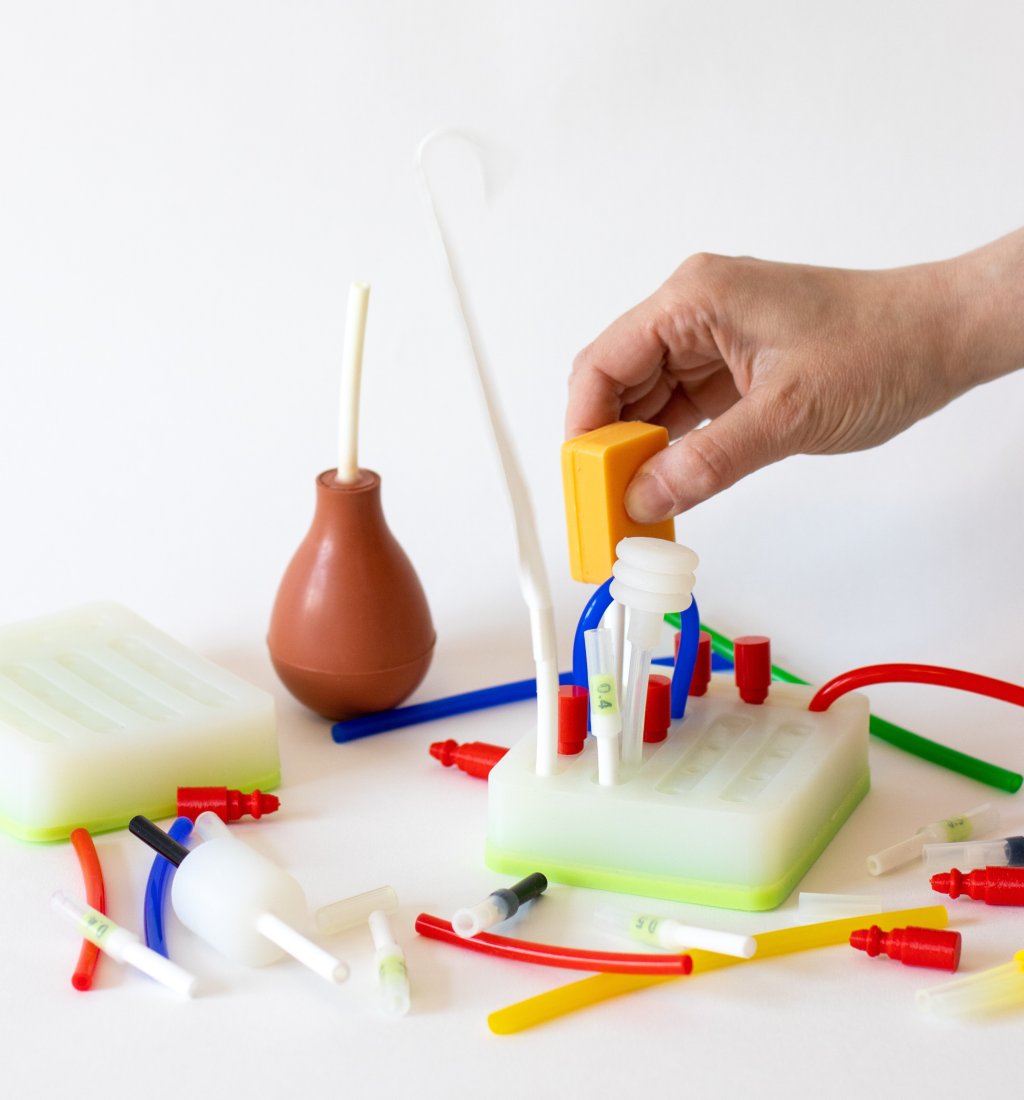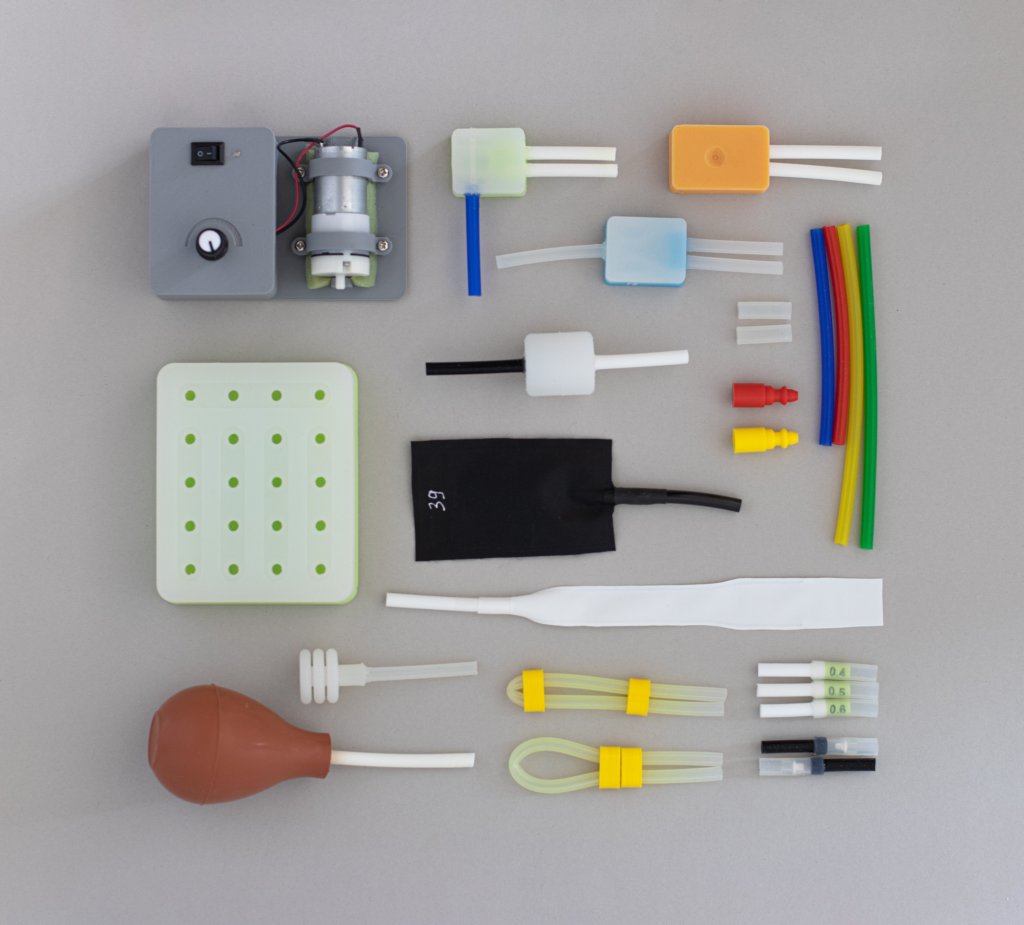Katrien van Riet, Bas Overvelde, Shibo Zou, Frank Delbressine
Many designers find it difficult to prototype air-driven soft robotic devices as this requires access to specialty fabrication equipment and materials, as well as a knowledge of pneumatics. Some resources are now in place, however soft component fabrication still remains a challenge. Other areas like the Arduino space provide standard kits and components that provide incredibly low-barriers to learning electronics and programming; however these are not yet available in the field of soft robotics design. How can we help designers move forward with soft robotics?
The Soft Circuits Toolkit was designed to fill this gap. It is a collection of fully soft, pneumatic components accompanied by a manual and online platform filled with information on components and example circuits. The toolkit lowers the entry barriers to soft robotics in three main ways: by inspiring, enabling prototyping, and teaching about soft robotic circuits.
To achieve these goals, the online platform and paper manual provide information about components and building tutorials. The online platform also offers videos of every circuit to show what users can build with the toolkit and to provide inspiration. Toy animals and a gripper were developed that can be controlled by the toolkit circuits, to give users a project they can build on. The animals are made from paper for easy assembly. The toolkit serves as an inspiration for users to start creating their own designs and to operating them pneumatically.
The Soft Circuits Toolkit enables designers to prototype fully soft circuits that work on air instead of electricity. These can be used to create soft robots or intelligent devices such as shape-changing wearables. Because these designs are fully soft, and thus safer for humans to interact with, their direct potential lies in areas like healthcare and human-robot interaction.





